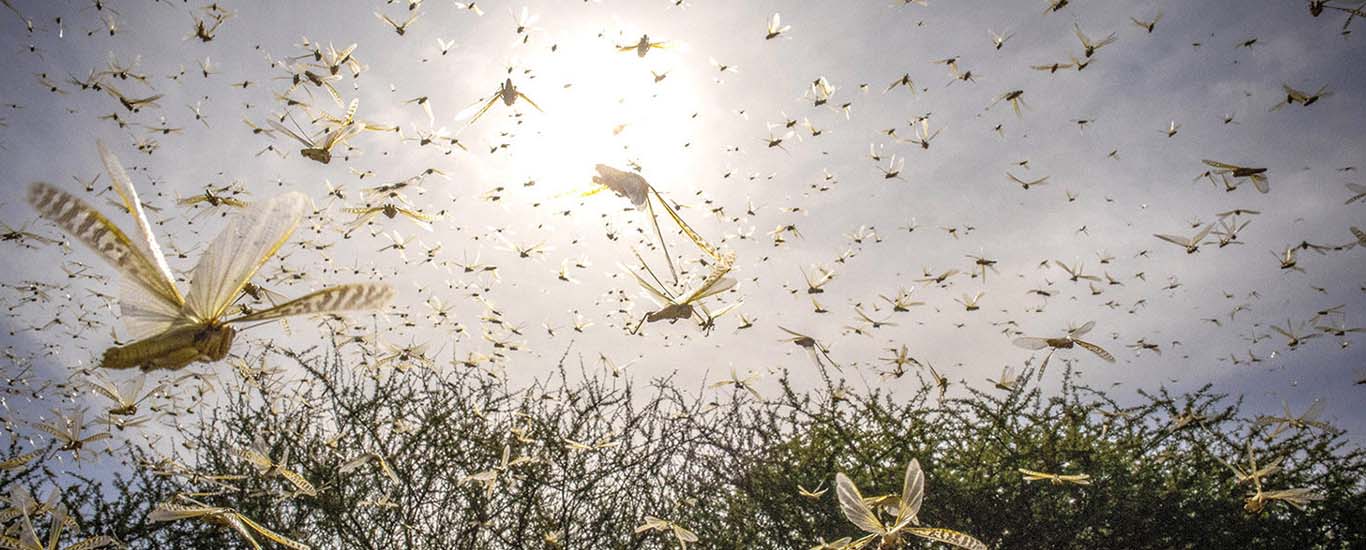
Karachi: Pakistan’s foreign office recently told that Pakistani and Indian authorities were working together to combat the worst invasion of desert locusts in decades in the region, which was threatening crops in both countries.
The two countries – also bitter regional rivals – have been coordinating through the United Nations Food and Agriculture Organisation (FAO), on controlling the locust activity, sharing data and attending weekly meetings.
During a weekly briefing, a spokesman from Pakistan’s foreign office said a decision to work together was made at a ministerial-level meeting of Pakistan, India, Afghanistan and Iran in March.
The participants decided to revive communication between the regional countries through the FAO’s Commission for Controlling the Desert Locust in South-West Asia (SWAC).
Each country, helped by the SWAC, agreed to establish a technical and operational coordination (ToC) team to exchange information, enhance coordination at the border areas and increase synchronisation to combat the desert locust outbreak in the region, said the spokesperson.
Pakistan’s foreign office said the country has been participating in SWAC meetings weekly, which are fruitful in exchanging information in the bordering areas of Pakistan and India.
“On its part, the government of Pakistan remains committed to cooperating with all SWAC member states, including India, in combating the desert locust outbreak,” the spokesman said.
Pakistan is facing its worst locust infestation in two decades, prompting authorities to declare a national emergency.
Millions of locusts have also engulfed India’s seven heartland states, including the western desert of Rajasthan, and threaten vegetable and pulse crops such as lentils and beans.
The last major locust surge was in 1993 when heavy rains created favourable breeding conditions for the insects along the India-Pakistan border.
Fresh swarms have arrived as governments in both countries are trying to contain the spread of the coronavirus and reeling from economic fallout associated with pandemic restrictions.
The insects have caused extensive damage to pastures and crops and threatened food security in East African countries including Somalia, Ethiopia, Kenya, Eritrea and Djibouti this year.
Locust swarms can fly up to 150km (90 miles) a day, and the adult insects can consume roughly their own weight in fresh food each day.
A small swarm can eat enough food to feed 35,000 people in one day, according to the FAO.
-AVN Report






